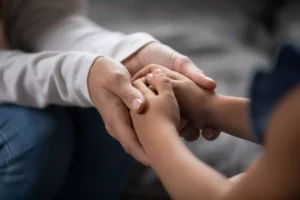When our son, Austin, was 15, he won a celebrity look-alike contest. (He was a dead ringer for Justin Bieber.) It came with a $500 prize and an appearance in a music video. He was elated at being chosen.
We soon learned that the video had some foul language in it and was actually a spoof, mocking the celebrity my son resembled. My husband and I wanted to pull the plug on the whole thing, but we kept quiet. Let’s give Austin a chance to think about this on his own, we reasoned.
He knew the content of the video was problematic, but the pull of $500 was blurring his decision. He asked us for a few days to decide. While it was hard to hold our tongues, we agreed to the time, fully prepared to play the parent card, if needed. A few days later, I asked Austin about the video. “I emailed them and told them I wasn’t doing it,” he responded.
Teens have one foot in adolescence and the other foot in adulthood. They’re learning to make big decisions on their own, yet still require accountability and a compass that guides them in the right direction. Internally, they’re asking questions — bout themselves and about their relationships — that we need to help them answer. These questions often stem from five core needs: security, belonging, identity, purpose and aptitude.
























